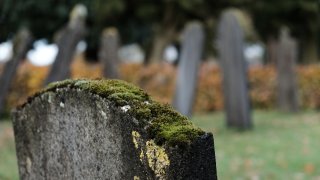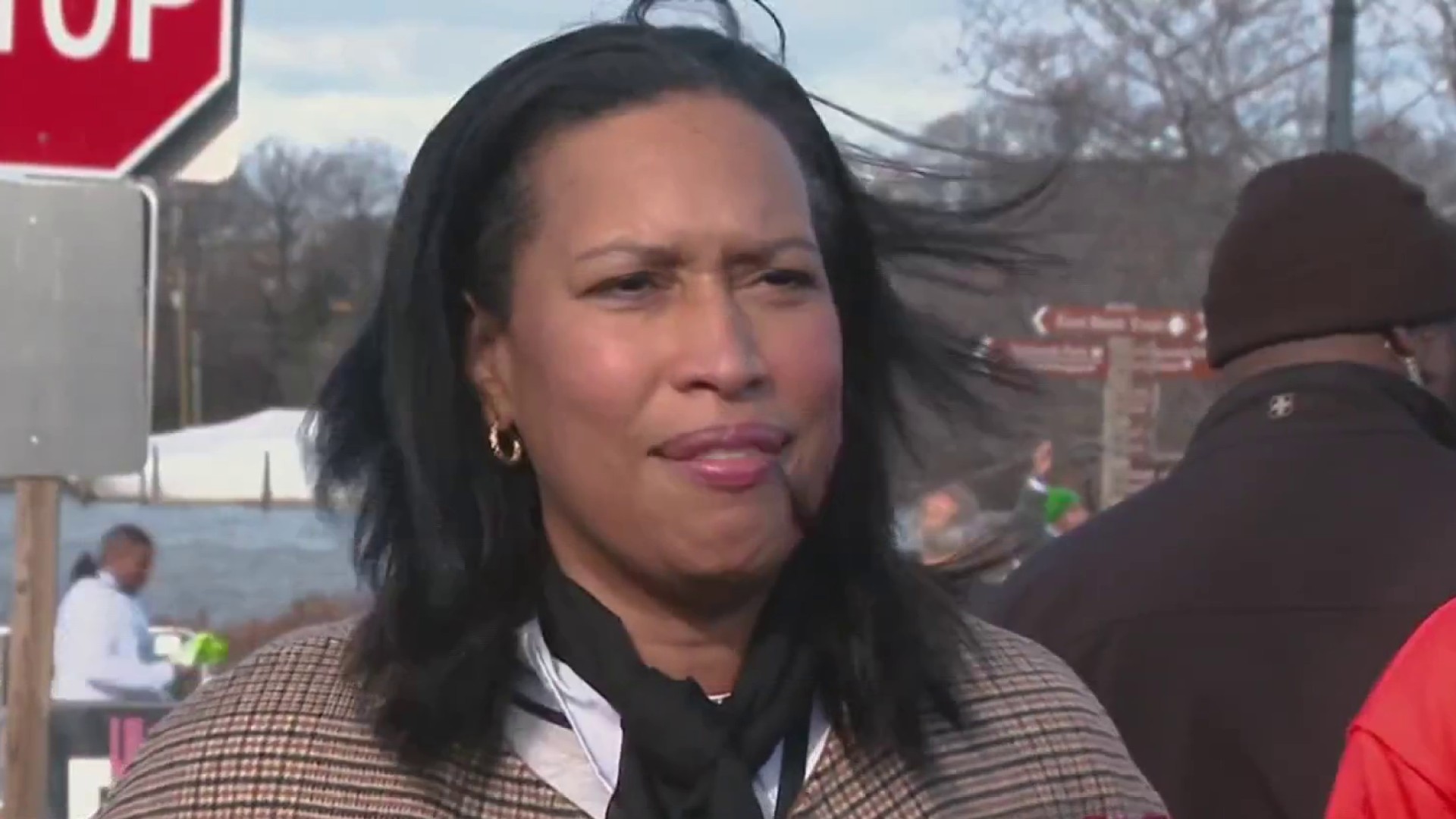
Editor's Note (April 19, 2021, 2:05 p.m. ET): An amateur genealogist said she scrubbed the gravestones to make them easier to photograph for a website. Go here for updates.
Bridget Blake walked through the historic cemetery behind All Hallows Episcopal Chapel in Davidsonville and cried. She didn’t grieve for the loss of a loved one but for the destruction to over 160 gravestones sloppily scrubbed clean by unknown people.
Marble used for gravestones that date back to the 18th and 19th century is sensitive and easily disintegrates. The stone must be gently washed with special soap and water. But this month two people were spotted behind the Episcopal chapel brushing headstones with unknown chemicals. Gravestones at the Methodist church down the street were also marred by the unwelcome wash.
“The stones and the people beneath them I feel like I know intimately after 12 years,” Blake said.
We've got the news you need to know to start your day. Sign up for the First & 4Most morning newsletter — delivered to your inbox daily. >Sign up here.
The result is hundreds of graves stripped white, signs of age removed from family names and notable dates inscribed in the stones. The fresh streaks pop against mossy marble. It’s not just appearance. The more a stone is cleaned, the quicker its letters wear away.
Blake describes the abrasions as a defacement both unsightly and physically damaging to the century-old stones. The parish reported the incident to Anne Arundel County police as vandalism and destruction of property.
Blake and Joan Placido, who together make up All Hallow’s cemetery committee, have spent over a decade restoring and maintaining the parish’s two cemeteries in Davidsonville and Edgewater, winning recognition among groups like the Coalition to Protect Maryland Burial Sites and Anne Arundel County Trust for Preservation.
Local
Washington, D.C., Maryland and Virginia local news, events and information
The only way to fix the marked stones is to scrub them all down to the same color. The women estimate it will take 150 hours to clean the headstone streaks and cost upward of $10,000.
“Joan and I were absolutely ill about it,” Blake said.
The stones serve as a glimpse into the past. Those buried in the All Hallows plot include farmers, politicians, mothers, doctors and soldiers. They were tramped by ox carts, killed by a horse’s kick and died by plagues or in childbirth. A Union surgeon in the Civil War, sent home sick likely with diphtheria in 1862, was buried next to his two young daughters. They were infected and died six months after him.
Blake and Placido said they have no idea who, or how many people, could have scrubbed the graves. And they aren’t sure why, although genealogy websites like “Find A Grave” have become increasingly popular in recent years. They rely on culling names and dates of graves across the country.
One hunch is the culprits were doing just that, clearing names and dates on headstones for a cleaner read and then logging the information into public websites. Another possibility is someone felt compelled to spend several days cleaning the weathered stones. Malicious or not, no one asked the church’s permission.
And if they did, Blake said, she has an organized table of the engraved information, including the cause of death for some people, for all the graves on the site. Whoever wanted the information could have just asked, she said. Because the Central Avenue cemetery is known for its historic preservation — its earliest grave is from 1825 — Blake said she receives multiple calls a week from people interested in tracking down their ancestors.
“They would have had everything they wanted and not have done this to our cemetery,” Blake said. “Isn’t that tragic?”
Tim Hopkins, co-chair of the cemetery committee at Davidsonville United Methodist Church, didn’t think the culprits were acting in spite but was astounded by their audacity. Hopkins said the church doesn’t have the manpower or funds to fix the old headstones that sit in among 300 graves.
“The main problem is that they only cleaned parts of the stone which meant other parts are left dark and it almost looks like a zebra where it had been scrubbed,” Hopkins said. “I’m not sure there’s any damage actually to the stone itself because I don’t know what methods they used to clean them.”
In Davidsonville, families were split and the community deeply divided over the politics of the Civil War. Union soldiers and Confederate rebels were buried in the same peaceful cemetery, lush with blue periwinkle flowers and large ginkgo trees. Blake said the plot is the final resting place of generations — and one elderly congregate can count 11 generations of family members buried there.
Five miles away, slaves built the parish’s first location in Edgewater in 1727. That cemetery’s ancestry is even older and more valuable, with graves dug during the Revolutionary War. Blake and Placido worry that whoever is scrubbing graves in Davidsonville will return to target the Edgewater site.
Together Blake and Placido have taught classes on gravestone cleaning and restored 80 monuments, including a broken and scattered headstone for Mary Mackall, who died in a fire at age 43 in 1862. It cost $3,500 to piece and meld the stone back together with steel. While attending a funeral at the chapel, an elderly man told Blake he had been searching for his grandmother, Mackall, for years. After the headstone was repaired, he finally had found her.
On Monday, a layer of old rock covering the dates on Mackall’s headstone was scratched away, exposing it to the elements.
“I’m not sure what the motive might have been for doing this. Perhaps the idea that by our not cleaning them, somehow the gravestones are neglected?” said Rev. Jeff Hual, rector of All Hallows Parish. “They’re not neglected ... Although they are with Christ, they are still our congregants and their graves are lovingly cared for.”



